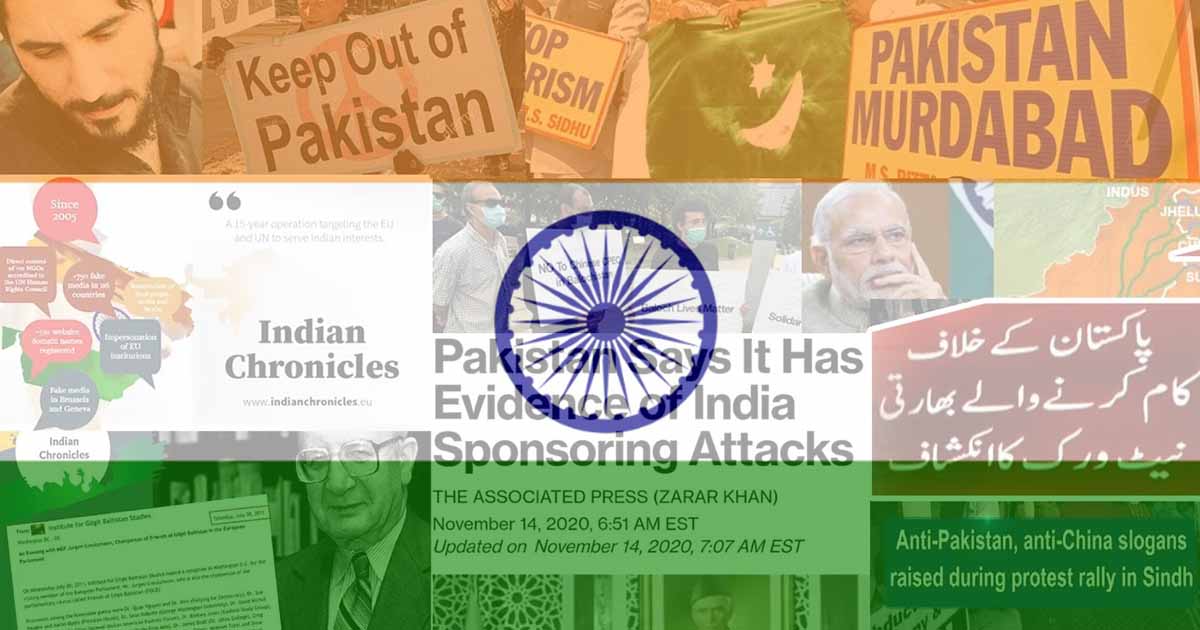
by Awais Abbasi 24 March 2023
Media has a significant role in shaping public opinion and influencing policies in a democratic society. It is supposed to be a force of good, however, in recent years; the Indian media has come under scrutiny for its tendency towards sensationalism and irresponsible reporting, particularly with regards to propaganda against Pakistan.
It is now normal for Indian media outlets to peddle fake news, and this is a cause for concern as it can have serious consequences, such as inciting violence and spreading communal hatred. The EU Disinfo Lab report, which uncovered a huge Indian network propagating falsehoods, is just one example of how Indian media has been exposed globally for its irresponsible reporting.
The report revealed that the Indian network was involved in spreading propaganda against Pakistan and influencing EU Parliamentarians and international public opinion. This is a serious matter, as it not only damages India’s reputation but also has the potential to exacerbate conflict and tension between India and Pakistan.
It is important to note that media outlets in India have a history of spreading biased and inflammatory information about Pakistan. However, the Indian media’s reach and influence has greatly increased, and therefore, it is imperative that Indian media exercise responsible journalism.
There have been several instances where Indian media outlets have been called out for their irresponsible reporting, particularly during times of heightened tension between India and Pakistan. For instance, during the 2019 Pulwama attack, several Indian news channels aired fake news and unverified reports, which only served to escalate tensions between the two countries.
The Indian media’s tendency towards sensationalism and lack of fact-checking is a cause for concern, as it undermines the credibility of the media and damages the democratic fabric of the country. The media has a responsibility to report news accurately and objectively, and it is important for media outlets to maintain journalistic ethics and standards.
It is important for countries to maintain good diplomatic relations with each other, and propaganda campaigns can have a negative impact on these relations. The use of false information and propaganda to malign a country is a serious matter and should be condemned by the international community. Furthermore, it is not within the purview of the international community to caution a country on its domestic policies, including its media policies. It is up to the country’s own media regulatory bodies and civil society to ensure that media outlets operate in a responsible manner and adhere to journalistic ethics and standards.
The statement by the GOC 15 Corps that there have been zero ceasefire violations in the Kashmir Valley and no instigation from across the border is significant. Ceasefire violations and cross-border terrorism have been major issues in the region, and any reduction in such incidents is a positive development.
However, it is important to note that the situation in Kashmir is complex, and there are multiple factors at play. The revocation of Article 370 by the Indian government in 2019 was a highly controversial move and has been criticized by several countries and international organizations. The move effectively stripped Kashmiris of their right to autonomy, which was accorded as per the UNSC resolution.
The Indian government’s claims of boosting military achievements in completely seizing cross-border terrorism in the region must be viewed with caution. It is important to acknowledge that terrorism is a complex issue, and its roots lie in a variety of factors, including political, economic, and social. Merely relying on military means to tackle terrorism may not be sufficient to address the underlying issues.
Furthermore, the human rights violations in Kashmir, including the use of excessive force by the Indian security forces, arbitrary arrests, and restrictions on freedom of expression and movement. These issues must be addressed by the Indian government, and steps must be taken to ensure that the human rights of Kashmiris are protected.Bottom of Form
The Indian media has been repeatedly exposed globally for its irresponsible reporting and peddling of fake news, particularly with regards to propaganda against Pakistan. The EU Disinfo Lab report is just one example of how Indian media has been involved in spreading falsehoods and influencing public opinion. It is imperative that Indian media exercise responsible journalism and maintain journalistic ethics and standards to ensure that it remains a credible and trusted source of information.
